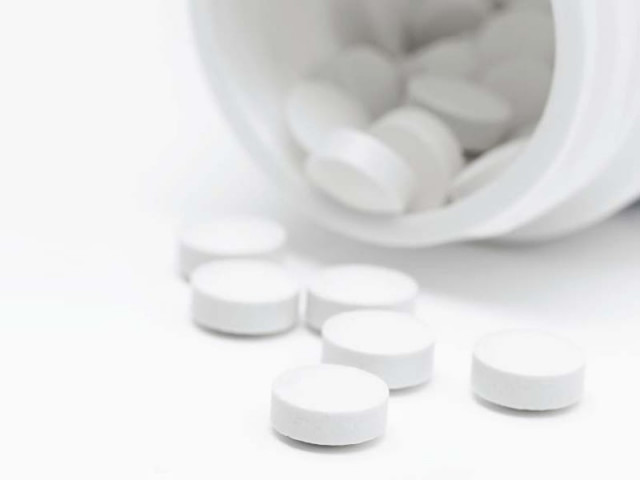Pharma and healthcare: GSK looking to aggressively expand in Pakistan
Company focused on consumer healthcare division, where prices are not set by the government.

Focused on emerging markets, GlaxoSmithKline’s Pakistan subsidiary is gearing up for expansion in its consumer healthcare arm. The company has been making targeted acquisitions and is looking to expand its core area away from the products in which the government regulates prices.
“GSK Pakistan is still mainly pharmaceutical; its consumer healthcare arm is about 10% of the business,” CEO Salman Burney said in an interview with The Express Tribune. The company wants to grow its consumer healthcare unit, he added.
The GSK chief said they want to do it in two steps: maximise support for the existing portfolio brands that include Panadol, Sensodyne and Aquafresh – in oral care – and Horlicks on the nutrition side. In the second step, Burney said, GSK – which has revenue growth of about 12% in its pharmaceutical line – may also go for new opportunities such as acquisitions and other new launches.
Paul Marson, GSK’s head of finance for their Middle East and Near East consumer healthcare division, in an interview with The Express Tribune earlier this year, already announced that GSK has decided to invest at least Rs2 billion in Pakistan in consumer healthcare over the next five years. “Pakistan is one of the countries where we want to aggressively invest in the near future,” he added.
On the pharma side, the company has been acquiring rival industries on a targeted basis – antibiotic manufacturers for example. It has been investing heavily on acquisitions of new assets and rebranding of certain products. “The current strategy is to broaden our business base and rebalance,” Burney said. GSK Pakistan, therefore, made acquisitions on a targeted basis.
“GSK launched five new products this year including Votrient, Duodart, Avamys, Synflorix and Fixval,” Burney said. The company is soon going to launch one or two antibiotic products, he added.
GSK’s selling marketing and distribution expenses amounted to Rs2 billion for the nine months ended September 30, up 20.6% from Rs1.68 billion in the corresponding period last year – reflecting its recent investments.
“We re-launched some of our products and these are mostly consumer side expenses,” Burney said.
GSK’s operating profit for the nine months ended September 30 amounted to Rs1.8 billion, up 33% from Rs1.4 billion in the corresponding period of 2010. However, earnings per share in the third quarter of 2011 dropped to Rs0.99 from Rs1.44 in the third quarter of 2010.
“Inflation hit our cost of production,” Burney said, “and at the same time we did not make price adjustments. With the exception of few products, we have not had a price increase since 2001.”
Rupee devaluation also affected gross margin, Burney said. “We also capitalized some capital base reserves which diluted the gross margin,” he added.
Burney said increase in profits – to some extent – will depend on business growth, inflation, price increases and how fast GSK can expand its products portfolio. Burney said the government should approve a pricing policy and allow a price increase across the board to urgently support the industry.
The government of Pakistan currently controls the price of pharmaceutical products it deems “life saving”, a policy that has hurt investment in the sector. Sources say the Swiss pharmaceutical company Roche wound up its operations in Pakistan for this very reason.
While GSK has invested heavily on acquiring assets and is likely to continue doing that a source from one of its competitors – who requested not to be named – said the recent acquisitions have not paid off as desired.
Most of their acquisitions are on antibiotic side, the source said, which are supplementary acquisitions. “Stiefel, for example is not adding much to the business,” the source said. They have not made any acquisitions on the biotech side, he added.
Their research molecule has not been as productive or at least it has not been realized as desired, the source said. “However, they still have many cash cows,” he added.
Despite challenges facing GSK, the chief executive is optimistic about the company’s growth. Pakistan’s strategic advantage is it is capable of setting up a globally competitive pharma industry, Burney said. “Pakistan remains a good market for us and we believe it will grow as the country has a very sizeable middle class,” he added.
Published in The Express Tribune, December 17th, 2011.


















COMMENTS
Comments are moderated and generally will be posted if they are on-topic and not abusive.
For more information, please see our Comments FAQ